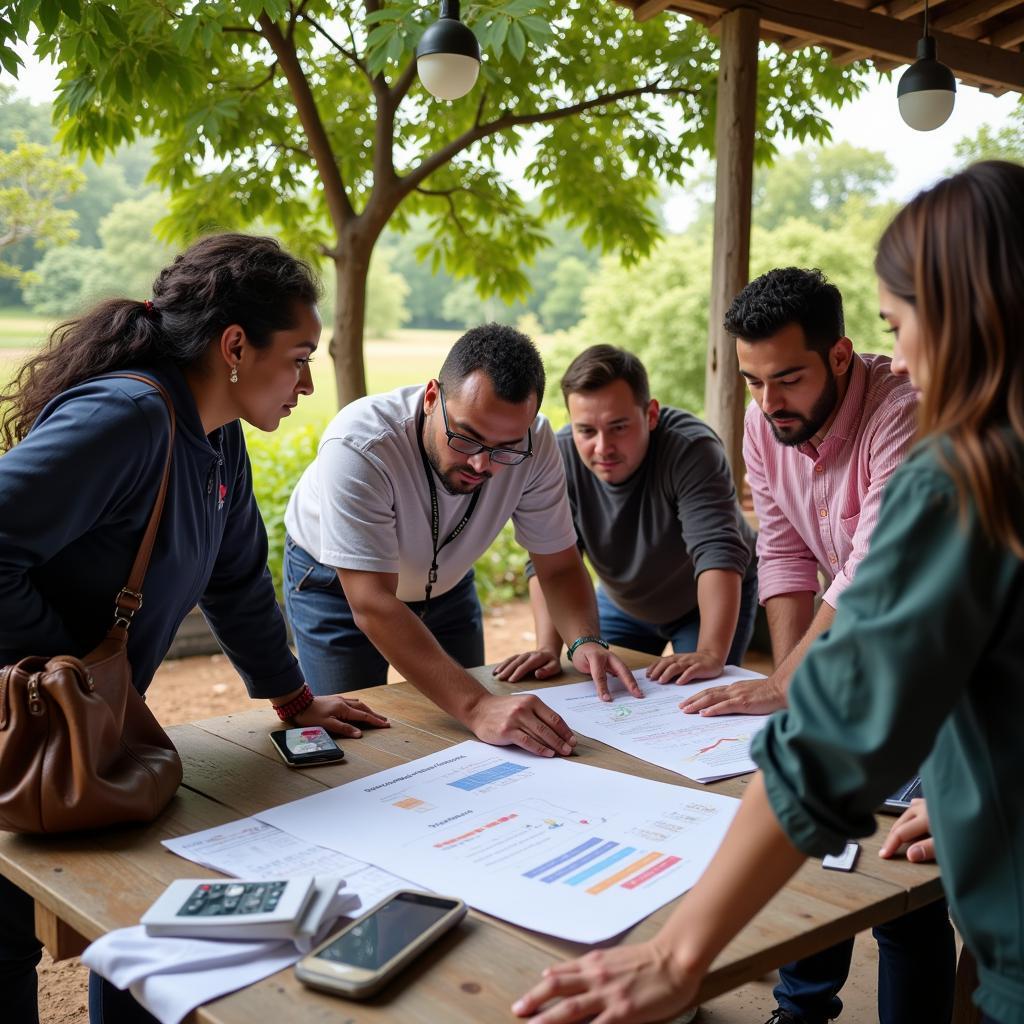NGOs and their impact on community development has been a recurring theme in IELTS Writing Task 2, appearing approximately 3-4 times annually since 2019. This topic frequently emerges in various forms, particularly in questions about social development, poverty reduction, and environmental protection. Based on analysis from reputable IELTS preparation websites and past exam databases, here are some recent related questions that have appeared in actual tests.
As Non-profit organizations shape public policy: role? becomes increasingly important in modern society, let’s examine a recent IELTS task 2 question on this topic:
Some people believe that non-governmental organizations (NGOs) are more effective than governments in promoting social development and helping the poor. To what extent do you agree or disagree with this statement?
Analysis of the Question
This question requires candidates to:
- Compare the effectiveness of NGOs vs governments
- Focus on two specific areas: social development and poverty alleviation
- Present a clear position with supporting arguments
- Provide relevant examples and evidence

Sample Essay 1 (Band 8.5)
In recent decades, NGOs have emerged as powerful agents of social change, often working alongside or independently of government institutions. While both entities play crucial roles, I largely agree that NGOs frequently demonstrate superior effectiveness in driving social development and poverty reduction initiatives.
NGOs’ effectiveness primarily stems from their specialized focus and operational flexibility. Unlike governments that must address numerous issues simultaneously, NGOs can concentrate their resources and expertise on specific social challenges. For instance, organizations like BRAC in Bangladesh have achieved remarkable success in poverty alleviation through microfinance programs and skills training, reaching communities that government programs often overlook. Similarly, The role of community organizations in social justice has shown that their grassroots approach enables better understanding and addressing of local needs.
Furthermore, NGOs typically operate with greater efficiency and transparency. Without bureaucratic constraints, they can respond more swiftly to emerging needs and implement innovative solutions. The success of Doctors Without Borders in providing emergency healthcare in crisis zones exemplifies this agility. Their ability to mobilize resources and expertise rapidly often surpasses government capabilities in similar situations.
However, it would be oversimplified to suggest that NGOs alone can address all social development challenges. Governments possess unique advantages, including broader reach and resource capacity. The role of government in protecting endangered species demonstrates how some initiatives require state-level authority and coordination. The most effective approach often involves collaboration between NGOs and governments, combining their respective strengths.
In conclusion, while both sectors have important roles, NGOs frequently demonstrate superior effectiveness in promoting social development and poverty reduction, particularly through their focused approach and operational efficiency. The optimal solution lies in leveraging the strengths of both sectors through strategic partnerships.
Sample Essay 2 (Band 6.5)
Nowadays, many people think NGOs are better than governments at helping poor people and developing society. I partly agree with this idea because both NGOs and governments have their own good points and bad points.
On one hand, NGOs are often very good at helping poor people. They work directly with communities and understand local problems better. For example, many NGOs provide important services like education and healthcare in poor areas where government services are not available. They also work faster than governments because they have less rules to follow.
However, governments also have important strengths. They have more money and power to make big changes. The importance of community engagement in environmental protection shows that government support is necessary for large-scale projects. Also, governments can make laws that help poor people in the long term.
Sometimes NGOs and governments work together, which is the best way. When they combine their different abilities, they can help more people. For instance, when natural disasters happen, NGOs often work with government agencies to provide emergency help to affected people.
In conclusion, I think both NGOs and governments are important for social development. While NGOs might be better at some things, the best results come when they work together with governments.
Key Vocabulary
- grassroots approach (n.) /ˈɡrɑːsruːts əˈprəʊtʃ/ – working directly with ordinary people
- bureaucratic constraints (n.) /ˌbjʊərəˈkrætɪk kənˈstreɪnts/ – official rules that limit action
- operational efficiency (n.) /ˌɒpəˈreɪʃənl ɪˈfɪʃənsi/ – ability to work effectively
- mobilize resources (v.) /ˈməʊbɪlaɪz rɪˈsɔːsɪz/ – gather and use available materials/support
- strategic partnerships (n.) /strəˈtiːdʒɪk ˈpɑːtnəʃɪps/ – planned cooperation between organizations
Conclusion
The role of NGOs in community development remains a significant IELTS topic. Practice writing essays on related themes such as:
- The relationship between NGOs and government agencies
- The impact of international NGOs in developing countries
- NGOs’ role in environmental protection
- The effectiveness of NGO funding models
The role of non-governmental organizations in social development provides additional insights for your practice. Share your practice essays in the comments section for feedback and improvement suggestions.